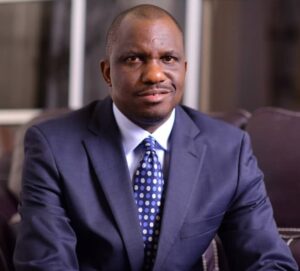Welcome to another episode of CLRNNCast! In the first of this 2-part discussion, CLRNN is in conversation with Mr Dele Alabi, MD – Ecobank Transnational Incorporated (ETI) Specialised Finance Company, Mauritius, who provides an insightful review of the state of health of the Nigerian banking sector in the lead up to 2020 and assesses the impact of the Covid-19 pandemic and oil crisis on the sector.

Mr Alabi is an award winning chartered stockbroker, accountant, tax practitioner and banker, with several decades of diverse experience in the banking industry. He has worked in various functions across the Ecobank Group, including Treasury and Financial Institutions, Strategy and Business Development, Corporate Banking, Finance, Controls and Risk Management. He also has country supervision and management experience, having been the pioneer Managing Director for Ecobank Uganda from inception in January 2009 till August 2011.
He is the president of the West African Bankers’ Association (WABA), Nigeria Chapter, as well as the National Treasurer of the Chartered Institute of Bankers of Nigeria (CIBN).
Almost 2 decades after the recapitalisation exercise of 2004/05, the Nigerian banking sector was gearing up for possible recapitalisation to strengthen the capital bases of its deposit banks and prepare them for the economic support role they are expected to play, pursuant to an economic plan proposed by Mr Godwin Emefiele in June 2019. The banking sector, like the rest of the economy, as discussed last week by Dr Josh Bamfo, had just recovered from the 2016 recession. According to Mr Alabi:
“I will say that the banking sector moved within that period from a challenging environment into an era of stability, then into an era of transformation and strategic initiatives being undertaken by the banks.”
In March 2020, Nigeria was confronted with a major threat to its main source of foreign exchange and revenue when a price war erupted between the Organization of the Petroleum Exporting Countries (OPEC) and Russia, leading to a crash in the price of oil. By April 2020, both the commercial and national capitals, Lagos and Abuja, shutdown as the Covid-19 pandemic made its presence felt in the country; delivering a major blow to the Nigerian economy. According to Mr Alabi:
“…for 2020 for example, the budgeted production level for crude oil based on just 2020 approved budget is 2.2 million barrels per day. But running up to the period of the crisis, the production – the actual production level for Nigeria, was on the average between 1.8 and 1.9 million barrels per day.
Of course, this situation was further worsened by the OPEC agreement on oil production costs, which again resulted in Nigeria being constrained to cap its production capacity of actual production to between 1.4 and 1.5 million barrels per day.
So Nigeria, has been hit on the two variables that generate the most significant revenue for the country. The two variables are the output and the price. So we’ve been hit at the price level because of the dwindling oil prices. We’ve also been hit at the output level, because of your combination of capacity – lack of capacity to produce what we had anticipated or budgeted for -and also because of the exogenous variables….”
The impact on the banks has been been equally concerning, given the exposure of Nigerian banks to the oil and gas sector. Mr Alabi says:
“…the impact of these shocks have been really very profound for the banking industry. First, there are growing concerns about the quality of the loan portfolio of some banks, due to the weakening capacity of obligors to meet their repayment obligations.
Again, if we look at the composition of the loan portfolio in the banking sector of Nigeria, over 20% of the loan book is in the oil and gas industry, which has been hit by the twin shocks. So clearly the loan book of most of the Nigerian banks actually suspect because of the challenges that we have.
I would give an example to demonstrate this point. After the crisis, at least 17 Nigerian banks in the country have sought approval from the central bank to restructure about 32,000 customer loans and these 32,000 customer loans – by time we quantify it in volume terms – account for about 33% of the loan portfolio of the banking sector.”
Listen to the interview to learn more about banking regulation and practice in Nigeria, in particular the Nigerian approach to non-performing loan regulation, capitalisation, lending practices. Also, for insights into the impact of the on-going crises on revenue, availability of credit and foreign exchange, amongst other things. The interview also explores the regulatory and banking sector responses to the Covid-19 pandemic and oil crisis.
You can listen to the podcast below.
Follow us on spotify or subscribe on apple podcast.
